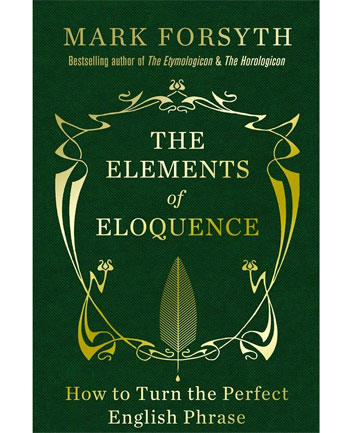
It’s not what you say, it’s the way that you say it.
It’s not what you write, it’s the way that you write it.
Whether you’re Lorde, Miley, JFK or Shakespeare, the secret to success is not always in the message, but in how the message is delivered . . . it’s the bows and baubles of rhetoric which captivate minds and fire up memory.
Who doesn’t like a rhetorical question The boundless sounds of assonance and repetitive rhythms of alliteration are part and parcel of pop and political success and a sure-fire way to the top of the charts.
But these trinkets of eloquence are also invisible. Largely untaught in schools. Largely untamed in the professional world. Our 24/7 newsreel world vomits up events in cold press-release monochrome; our garbled gaffe-ridden politicians need soundbite engineers toiling behind the scenes to negate their off-the-cuff inanities.
So when these linguistic tricks do appear to trigger our synapses to store a catchy chorus, advertising jingle or nicely turned phrase, we’re unaware of how they’ve wormed their way in. Enter Mark Forsyth. The sort of man who’s not content to use the everyday blunt tools of simple words, rather, an archaeologist of language whose Inky Fool blog and previous works The Entymologicon and The Horologicon, unearthed new meaning in old words and exposed the glistening gems of historical English.
In The Elements of Eloquence he turns his attention to the rules of rhetoric as set down by the Greeks – who would surely hate how their democratic legacy has ended up in the hands of such guileless speechifiers – and as manipulated by the genius minds of the English language.
Like Byron. And Churchill. And Alfred Lord Tennyson. And Tarantino. And Lennon. And Katy Perry.
Because that’s where Forsyth hits pay dirt. He converts what is essentially a textbook on “How to turn the perfect English phrase” – as his subtitle nicely puts it – into a codebook which reveals what makes great language so . . . well, great. No matter who comes up with it.
For example, there’s an order to adjectives we use to describe any noun which follows opinion-size-age-shape-colour-origin-material-purpose. Forsyth then uses the example of a “lovely little old rectangular green French silver whittling knife”.
Try swapping those adjectives around . . . an old lovely whittling silver French knife sounds weird doesn’t it It won’t change your world, but it does reveal a little more of how it works.
Ad Feedback
Once you’ve got the hang of it, you’ll also be able to work on your hyperbatons – or swapping words around for more effect, such as Cybill Shepherd in Moonlighting reminding Bruce Willis that “one case does not a detective make”.
And from hyperbatons, you can move on to diacopes, tricolons, epizeuxes, paradoxes, personifications and hyperboles . . . in all, 39 rhetorical tricks to turn prosaic speech into the sort of stuff which would send soldiers once more unto the breach or tell Americans to ask not what their country can do for them. It may also help with best man duties.
The command of rhetoric may well have passed from politicians to pop stars and from novelists to advertising execs, but we still recognise it when we hear it.
When JFK’s biographer David McCullough marked the 50th anniversary of the president’s death in front of a television audience of millions from a stage in Dallas, he reminded us how Kennedy “knew words mattered . . . His words changed lives. His words made history”.
He also recalled the last era in which rulers of rhetoric understood how their mastery of language allowed them to hold an audience by quoting Kennedy’s: “If more politicians knew poetry, and more poets knew politics, I am convinced the world would be a little better place in which to live.”
It’s doubtful that if more people knew Forsyth’s The Elements of Eloquence, the world would be a better place, but it would certainly sound a great deal better.
–
